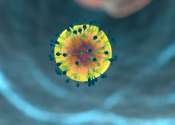Researchers discover cell 'crosstalk' that triggers cancer cachexia
New research from the University of Oklahoma reveals a previously unknown chain of events sparking the development of cancer cachexia, a debilitating muscle-wasting condition that almost always occurs in people diagnosed ...
Apr 12, 2024
0
51








